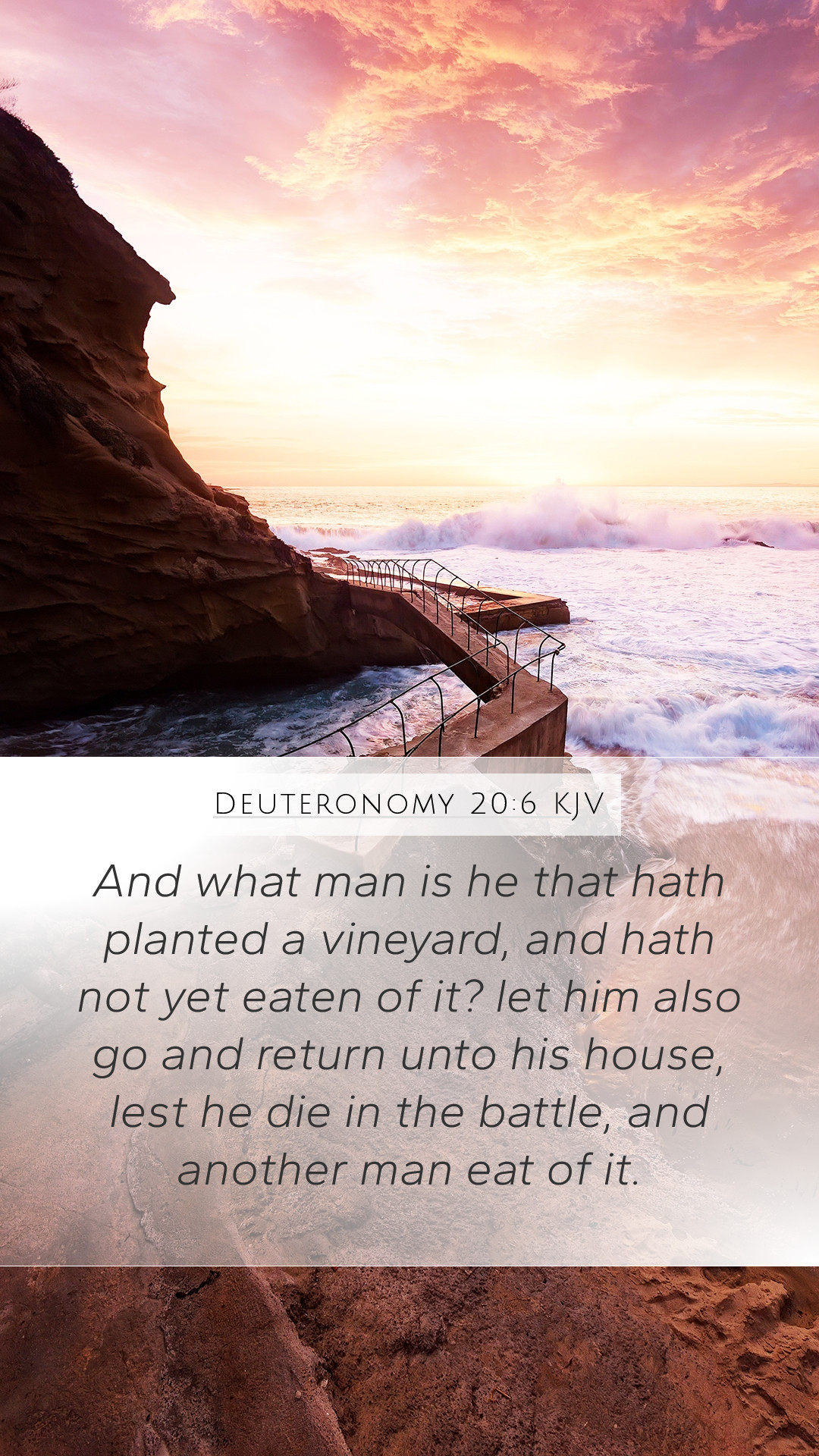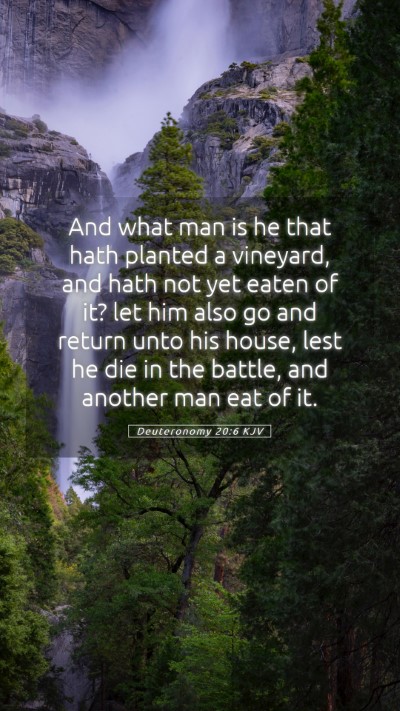Understanding Deuteronomy 20:6
The verse Deuteronomy 20:6 states: “And what man is he that hath planted a vineyard, and hath not yet eaten of it? let him go and return unto his house, lest he die in the battle, and another man eat of it.” This verse speaks to the importance of personal possessions and the responsibilities of individuals in the context of military engagement.
Bible Verse Meanings
Deuteronomy 20:6 can be seen as a guideline for prioritizing personal welfare in the face of collective duty. It highlights the significance of personal stakes prior to entering into the battle, ensuring that every soldier has a reason to preserve their lives, which subsequently impacts their commitment to the collective endeavor.
Bible Verse Interpretations
- Matthew Henry notes the grace of God in giving the soldiers an opportunity to withdraw from battle if they had yet to enjoy the fruits of their labor. This shows the divine consideration for individual circumstances amidst communal obligations.
- Albert Barnes emphasizes the fairness of the instruction, suggesting that a man engaged in battle should not be burdened with guilt or regret over his unenjoyed blessings. This displays an inherent valuing of personal and familial responsibilities.
- Adam Clarke suggests that this pre-battle provision reflects God’s mercy and the acknowledgment of individual contributions within the larger societal framework. It encourages not only individual responsibility but also the importance of community integrity and support.
Understanding Scripture in Context
To fully grasp this verse, it is essential to explore its historical backdrop. The Israelites are preparing for conquest, and Moses is directing them on how to approach warfare. The laws provided here aim to safeguard the lives of individuals, reminding them of the importance of their earthly roots and personal obligations.
Scripture Analysis
Analyzing Deuteronomy 20:6, we find a parallel in the New Testament where Jesus teaches about the cost of discipleship, emphasizing the need to consider one's situation before taking on a commitment (Luke 14:28). This indicates continuity in biblical thought that values personal responsibility alongside corporate mission.
Bible Study Insights
This verse is not merely a historical reference but serves as a poignant reminder for contemporary readers. It invites believers to consider how personal endeavors and responsibilities fit into the larger calling of faith and community service. The balance between personal life and service to others remains relevant today.
Additional Insights
When examining this verse, consider how it informs our understanding of God’s character, illustrating His compassion and care for the individual within the collective. It encourages thoughtful reflection on how we engage in our communities and balance responsibilities.
Related Bible Cross References
- Luke 14:28 – Counting the cost before making a commitment
- 1 Corinthians 9:7 – The laborer is worthy of his reward
- Ecclesiastes 3:1 – There is a time for everything
Conclusion
Incorporating insights from public domain commentaries, Deuteronomy 20:6 reveals rich meanings and interpretations that can greatly enrich our Bible study and understanding of scripture. The necessity of assessing one's personal circumstances within the context of serving a larger community serves as a valuable lesson today.
FAQs About Bible Verse Explanations
- What does Deuteronomy 20:6 mean? It emphasizes the importance of individual circumstances in the face of communal responsibilities.
- How can I apply this verse to my life? Reflect on your personal responsibilities and how they fit within your commitments to your community or church.
- Why is personal responsibility emphasized in scripture? It highlights God’s care for individuals, ensuring their needs and contributions are acknowledged alongside collective duties.


